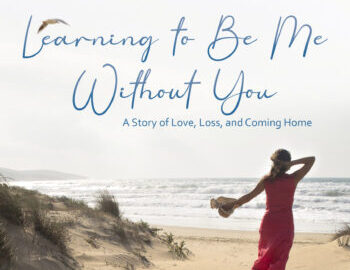August 30, 2022
Three Ways to Help Those Who Grieve
“Praise be to the God and Father of our Lord Jesus Christ, the Father of compassion and the God of all comfort, who comforts us in all our troubles, so that we can comfort those in any trouble with the comfort we ourselves received from God.”
~2Cor. 1:3-4.
August 30th is National Grief Awareness Day. Wouldn’t it be wonderful to be mindful of grief every day? We’re a hurting people. Webster’s New World Dictionary defines grief as “intense emotional suffering caused as by a loss.” That pretty much describes most everybody I know—at one time or another. How about you?
Our culture does grief poorly. We seldom know how to honor grief or respond to those in pain. Denial, distraction, division, depression, and destructive habits scream this truth. When grief strikes, we may pause—step out of the fray to tend our wounds. . . at least for a little while. But when the rest of the universe acknowledges our life-changing events with a “tsk” and a glance, grief can become an isolating journey we want to abort.
But grief-done-well can make us a gentler and kinder people, equipped by sorrow to make our world a better place. When we acknowledge our grief and allow God to heal and comfort us, we do so not just for our good but for the sake of others. Grief can’t be fixed. It has no timeline. But it can nurture spiritual growth and compassion for others.
Three ways to help those who grieve:
1. Tend to grief. We’ve all known emotional suffering caused by loss. But choosing to enter our suffering—to allow Jesus to comfort us and heal us, and, by so doing, equip us to serve a hurting world is supernatural stuff. We become a testimony to God’s grace and sufficiency; His compassion and heart for people in pain is expressed through us; and we grow in our ability to be present with those who mourn. Grief can’t be fixed but it can be healed; it has no timeline, but it will end; and when we follow Jesus, He leads us through grief and back out into the world to comfort others as we have been comforted.
2. Take the initiative. Don’t wait to be asked to do something. Do something. When my son-in-law died, one of his friends offered to do handy-man jobs around the house; men from work and church provided lawn care; many families brought meals or sent food related gift cards. One young woman who had lost her mother as a child dropped by with four cozy comfort blankets: one for my daughter and each of her three girls. And it’s easy to send a card, personal note, or text that requires nothing of the recipient. Grief is an exhausting personal journey; it helps to know you’re not forgotten.
3. Listen. We must focus on the hurting person and follow their lead. Healing comes in telling their story. Don’t pry. It’s generally not a time to share personal stories or offer opinions. If you can’t think of what to say, it’s okay to remain quiet. There is a rhythm of grace in shared grief—empathy, compassion, and unhurried helping as we slow our pace to match another’s and help share their burden by our presence.
I’d like to make tomorrow another grief awareness day. Anyone want to join me?
For more information check out the book Don’t Sing Songs to a Heavy Heart: How to Relate to Those Who are Suffering by Kenneth C. Haugk, Ph.D, pastor and clinical psychologist who is the founder of Stephen Ministries. It’s a great “field guide” for engaging with those who grieve.






